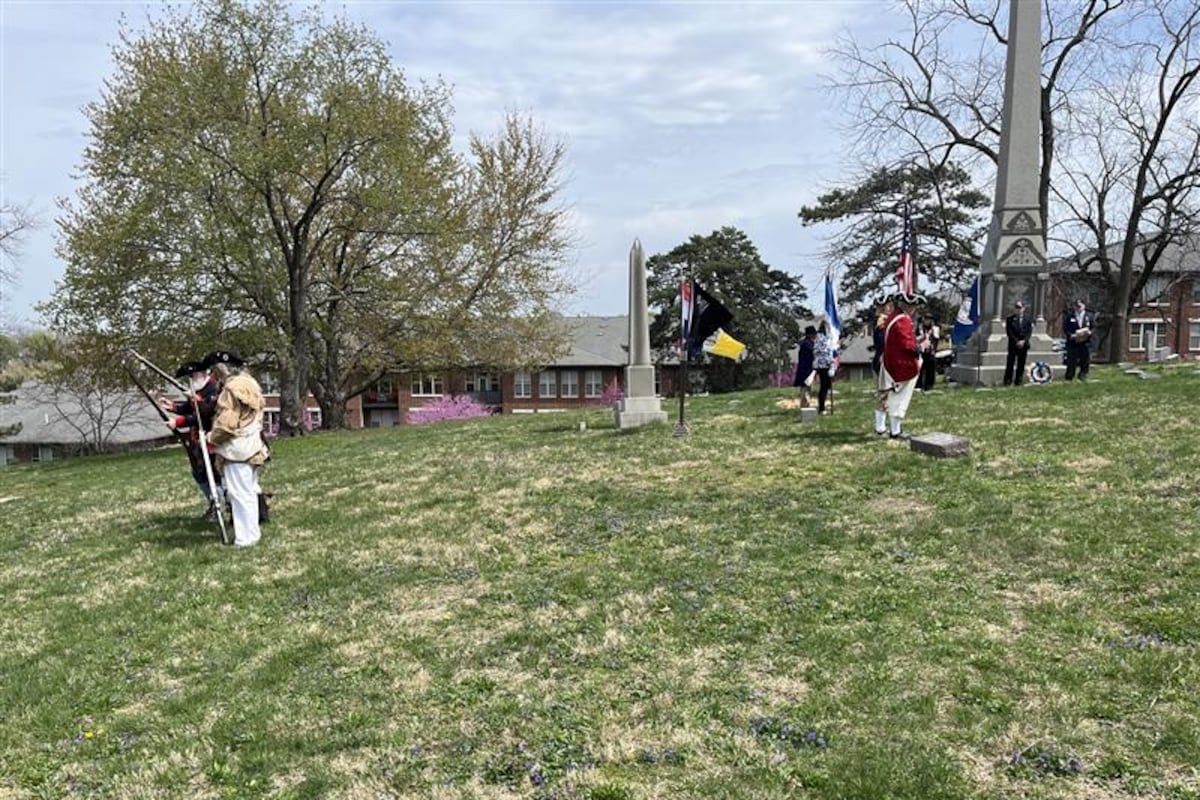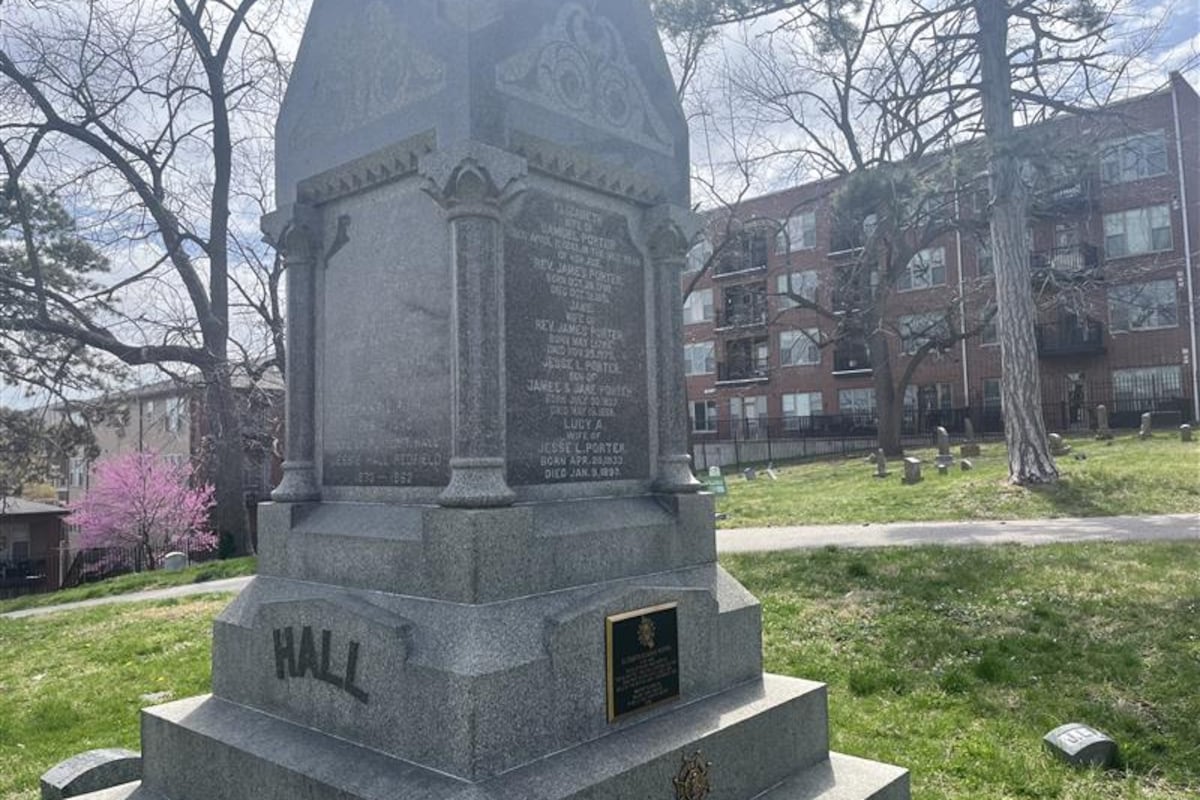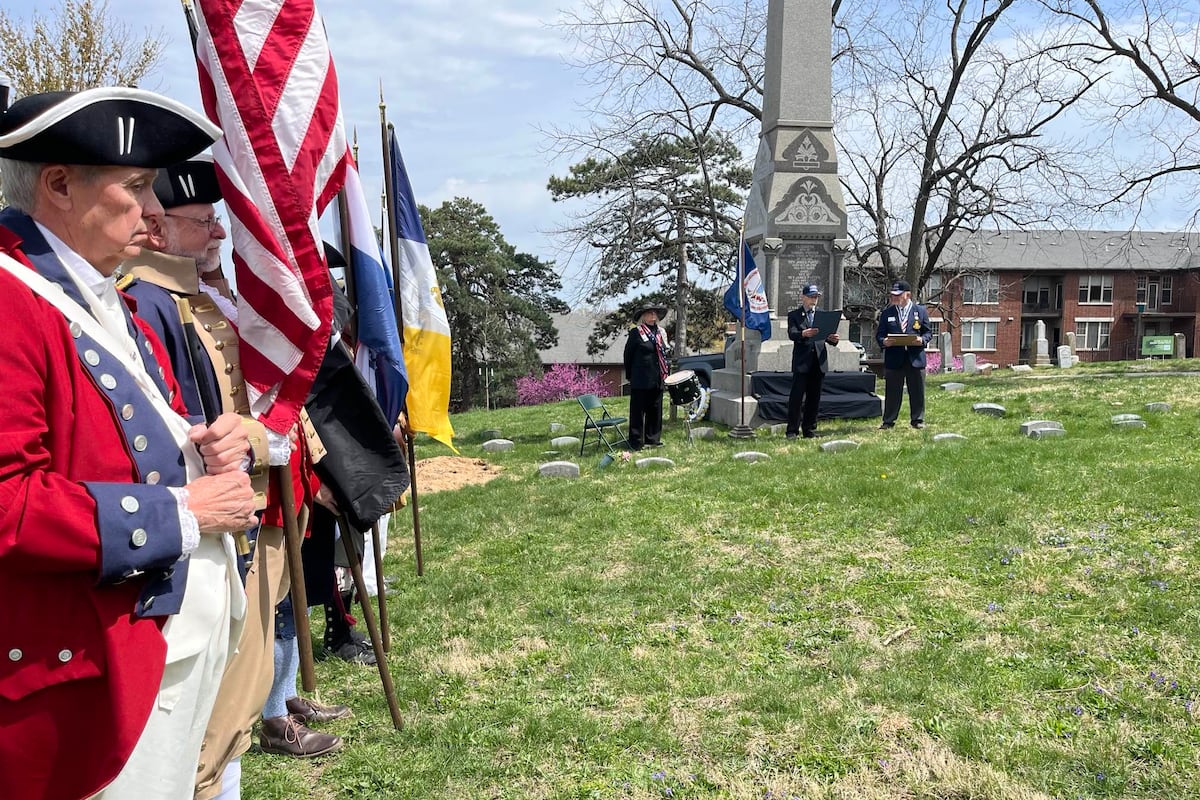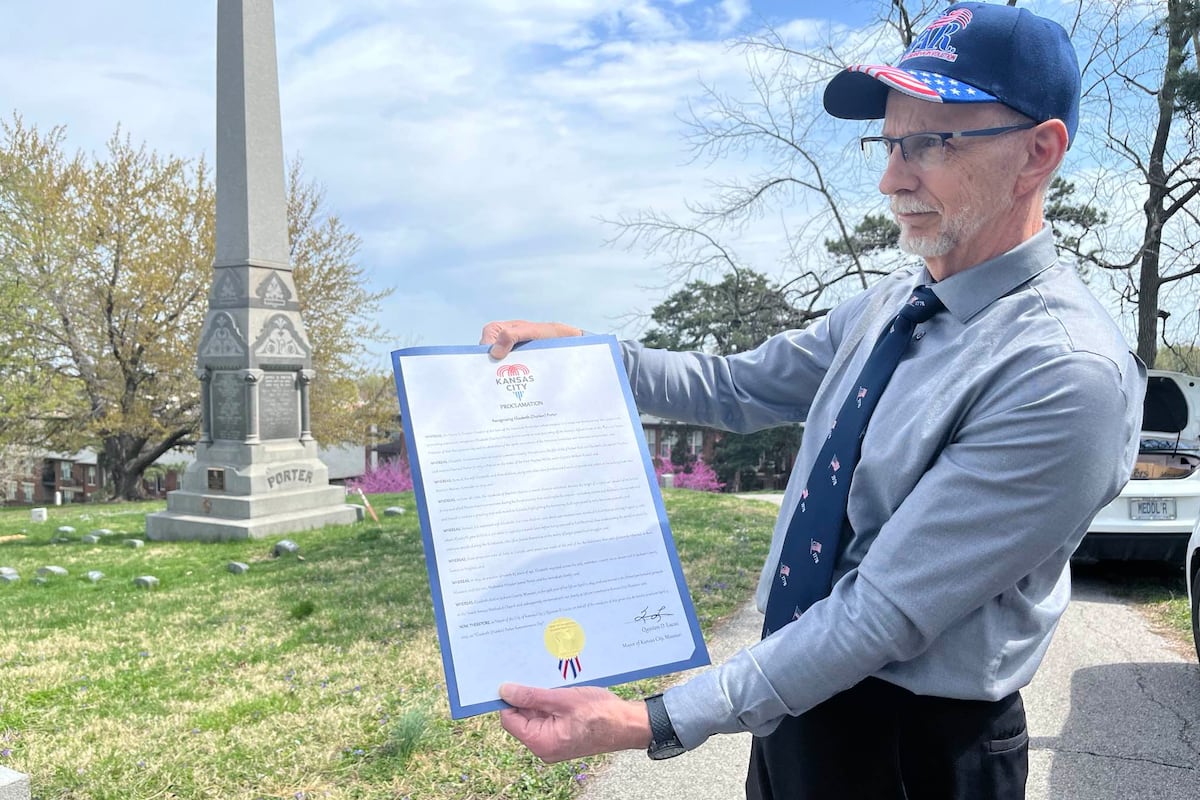Revolutionary War heroine honored on POW Recognition Day
KANSAS CITY, Mo. (KCTV) - On National Former Prisoner of War Recognition Day, a new marker was placed on a family monument at Union Cemetery to honor Elizabeth (Dunkin) Porter – a woman whose sacrifice helped shape America’s birth.
Ivan Stull, President of the Harry S. Truman Chapter of the Sons of the American Revolution, led the ceremony.
“She became a patriot, and we honor the Patriots by marking their grave,” Stull said.
Elizabeth and her husband, Samuel, raised seven children in Virginia. During the Revolutionary War, Samuel served in the First Militia under Captain William Russell. In 1779, the Porter family settled near Ruddle’s and Martin’s Station in Kentucky.
Their American dream was violently interrupted on June 26, 1780, when British forces attacked their settlement. Elizabeth, pregnant at the time, Samuel, and another child were captured and forced to march over 600 miles to Fort Detroit. Alongside 400 others, the family endured two years of captivity.
“They marched her for almost two months,” said Brian Smarker, Chapter Registrar and Genealogist.
In September 1780, while still imprisoned, Elizabeth gave birth to her son, Hugh. The family was finally released after the war but never reclaimed their Kentucky land.
Following Samuel’s death in 1820, Elizabeth moved to Jackson County, Missouri, with her son, Reverend James Porter. She died in 1845 at the age of 95, her story ending nearly a century of American transformation.
“This is for our liberty, for our independence,” said Stull. “And they gave up their time, their life, and in the rough times—I mean rough—and they were willing to sacrifice themselves to bring about America.”
The Sons of the American Revolution hope that by honoring Elizabeth Porter’s grave, future generations will understand the true cost of freedom.
“If I had to defend my country, would I?” Stull said. “Those people did because they knew freedom was out there, and they fought for it.”




Copyright 2025 KCTV. All rights reserved.














